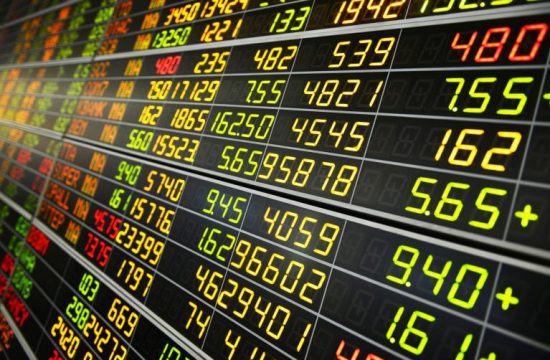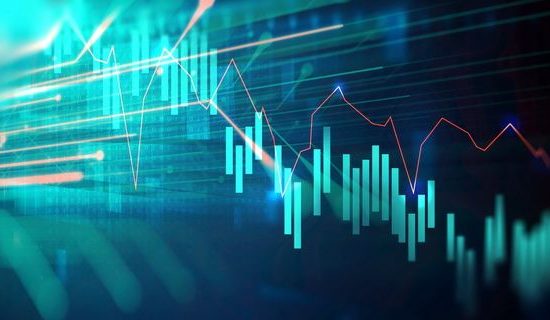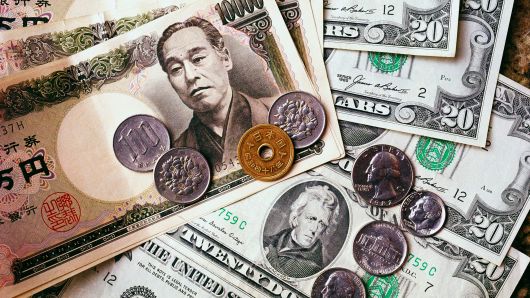by Giles Coghlan, Chief Currency Analyst, HYCM
It’s been a marketing mainstay for decades in the industry: retail trading democratises access to the markets. The story goes that once upon a time, only a privileged few could make fortunes in those markets. But then, like stealing fire from the gods, the personal computer, online revolution, followed by the emergence of the humble retail brokerage, gave birth to a new type of trader.
Mrs. Watanabe
If you’ve been around long enough, you’ll probably remember Mrs Watanabe from the early 2000s. This was the name given to a generation of Japanese matriarchs who ventured out into the FX markets with their family savings in tow. This prototypical retail trader, seeking a higher return than was available in the country’s banking system following a “Lost Decade” of low interest rates, took advantage of carry trades in which the local, low-yielding currency, was exchanged for other high-yielding currencies such as the Australian dollar. The phenomenon was so widespread that it moved markets. Some have even suggested that the activities of Mrs Watanabe actually dampened volatility.
YOLO 2020
Cut to 2020. The highly unorthodox policies that Japan’s central bank enacted during its now multiple lost decades have been adopted across the globe following the financial crisis of 2008. It’s an environment of ultra-low and even negative interest rates, soaring government debt and rampant monetary expansion. Then, just as economic conditions appear to be starting to roll over again, the world is hit by an even-worse crisis. A pandemic so virulent, that it causes much of the globe to shut down as people are forced to lock themselves in their homes to avert its spread. The market collapse that follows is as remarkable as it is devastating.
Retail trading has also moved on since the early 2000s. The crypto boom of 2017 introduced millions of new people to markets and how they work. New services like Robinhood attract armies of young speculators to traditional markets with the lure of no commissions and a bevy of exotic instruments to play with. In hindsight, it was always going to be a recipe for madness, but the institutional crowd didn’t pay it any mind at first, firing off pithy dismissals from their ivory towers about these “Robinhoodies”.
An FT article from June of last year discusses the phenomenon and exemplifies the attitude. “In reality, traders like him are too small, even as a combined force, to move big stock indices like the S&P 500. They are passengers in the rush into riskier assets after central bank interventions shoved government bonds to unpalatable highs. But they have also begun to steer the rally’s excesses.”
The article also marks a turning point where you start to get a sense that institutional investors are becoming uncomfortable with the “flight to junk”, that saw many of these retail traders snapping up stocks in decimated companies like JC Penny and Hertz, leading to absolutely preposterous rallies of 500% and 1500% respectively.
As industry after industry has been forced to discover time and again, the Internet has its own unique style and manner of doing things. The trading world is learning that it’s not immune to this dynamic. Stuck at home with their stimulus cheques, egging each other on via online trading forums like the now-infamous WallStreetBets subreddit, this uncouth, day-trading retail rabble has not just fuelled the excesses of a recovery that’s looked thin on the ground throughout 2020 and early 2021, they’ve now successfully coordinated what can only be described as an attack on institutional short-sellers, costing them billions of dollars in the process.
The GameStop short squeeze
If GameStop execs hadn’t seen the writing on the wall prior to the pandemic, they must have been feeling a bit like the Blockbuster Video of 2020 when the world started shutting down; a brick-and-mortar videogame retailer, in a time when gamers do everything online and rarely leave their bedrooms anyway. As you might expect, GameStop was already under pressure pre-COVID.
August 12, 2019, saw it booking its then all-time low of around $3.13 per share. This was off its 2007 highs at just above $60. You see, GameStop never fully recovered after the GFC. It set a weekly lower-high at around $55 back in November 2013, but its best days were clearly behind it. The COVID crash would see it plunging to new lows of $2.58 in early April, and that’s when things really got interesting.
Trough to peak, from the low of April 6 to the staggering high of $160 on January 25, 2020, GameStop stock has appreciated by more than 6000% in 9 months. To put it in context, that’s 6 to 8 times more than what bitcoin or ether have managed over the same period, and they’re being hailed the best-performing assets of 2020. GameStop stock is up some 300% in January alone.
How it happened
We’ve looked at the whys, now we look at the hows. The GameStop spike, which is already being commemorated through the sale of memorabilia, is an example of what can happen when the Internet meets institutional short-sellers at an unprecedented moment in history. The heavily shorted stock in the “failing mall-based retailer”, as one research firm dubbed it, has been a favourite among traders on the WallStreetBets subreddit who’ve demonstrated a knack for pumping the stocks hit hardest by the COVID crisis.
Shorting stocks involves first borrowing, then selling into the market with the intention of buying back at a cheaper price with the proceeds and pocketing the difference. It’s a highly risky strategy that involves the risk of potentially unlimited losses if the stock you’ve shorted keeps rallying higher. When a short-seller covers their position, they have to purchase the stock back in order to pay their debt. This can lead to a feedback loop of sorts, called a short squeeze, where buying back a shorted stock en masse, especially when short positions are underwater and margins need to be serviced, can cause massive price spikes. This leaves shorts further underwater with mounting pressure to cover.
This is what retail traders have managed to initiate with a little coordination on WallStreetBets. In some circles, it’s being referred to as a “Gamma Squeeze”, due to the options component of the trade that’s seen WallStreetBets devotees purchasing wildly out-of-the-money call options on GameStop stock, which then requires market makers to hedge their exposure to these positions by actually purchasing the stock, which leads to a similar feedback loop that squeezes the price higher.
How it ends
Surely the irony is lost on no one that these young traders are the product of that much-vaunted democratisation of markets, and through some peculiar twist of fate, at one of the strangest moments in history, have actually become real-life stock market Robin Hoods. Consider the fact that their outlandish speculative shenanigans have resulted in companies that were at, or beyond, the brink of bankruptcy, being able to unload stock and raise capital at ridiculously inflated prices that their firms could never otherwise hope to justify.
It boggles the mind. The finance industry has blithely called for the democratisation of markets for decades, never fully expecting it to happen. It’s just one of those things that is routinely said. It sounds good. But in practice, in the Internet age, it looks much more like Millennial and Zoomer shut-ins aggressively YOLO-ing in and out of markets in tandem. One-upping each another in how monumentally stupid their plays are and earning bragging rights for how catastrophic their realised losses. One could say something poetic here about it being a dark mirror through which the excesses of the traditional financial system are reflected back to us. The real worry is that this moment in history, where everyone and their aunt is talking markets and exchanging stock tips, feels strangely familiar to anyone who’s ever read about the speculative mania in the United States just before the Wall Street Crash of 1929. If you routinely trade in your hoodie, Google it!
by Giles Coghlan, Chief Currency Analyst, HYCM












